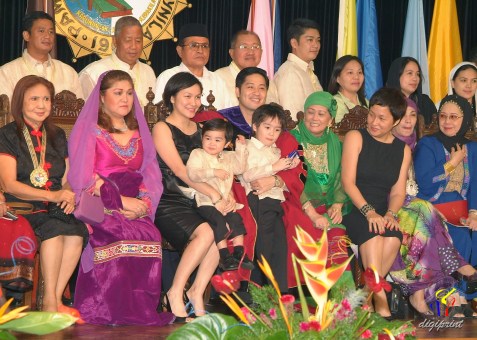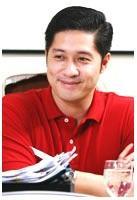By Adel A. Tamano
Philippine Daily Inquirer
First Posted 23:05:00 08/16/2009
TWO WEDNESDAYS ago, in alternately pouring rain and humid heat for two and a half hours, I waited in line with students of the Pamantasan ng Lungsod ng Maynila (PLM) to pay my last respects to former president Cory Aquino.
Being the president of PLM and one of the department heads in Manila, I could have cheated and skipped the queue, but it would have been contrary to the things that Cory stood for – equality, fairness and democracy.
In fact, the little inconveniences of waiting in line and the erratic weather made perfect sense to me: I wanted to suffer a little, as a thanksgiving gesture to a woman who had lived a life of sacrifice for my country and so, logically, suffered for me as well.
But it was not logic – at least not the cold, impersonal kind that we associate with the term – that brought thousands of people to line up to pay honor to their Tita Cory. Logic would have dictated that these people stay in the comfort and safety of their homes and watch TV to get their last glimpse. Certainly, rationality was not what brought us there. It was emotion and compulsion. For me specifically, a sense of duty and gratitude.
Deep sadness
Days after, I was still in an emotional funk. I was deeply sad but afraid to articulate it, not even to my family and friends. I feared I would be scoffed at: There goes Adel being overly dramatic and self-indulgent about the demise of Cory.
The problem was, the sadness was there, palpable and real. It was a feeling that the country had become a less noble place because of her passing.
In fact, having stood in line with PLM students, I could not help but wonder: Who would be their Cory?
These young men and women were born after the Edsa Revolution, and what they knew of Cory, particularly the years when she had to make the courageous and painful transition from homemaker to national leader, was secondhand at best.
They knew Kris – Cory’s daughter who is a popular media personality but not a political or social leader in the classic sense – but were only vaguely familiar with Cory. They knew Cory was at one time the country’s President. They knew she was the wife of assassinated opposition leader Ninoy Aquino but they had not been made aware of the struggles she had had to face and overcome.
In contrast, Cory was a touchstone and a benchmark for my generation – an icon of inner strength, spirituality and, most of all, decency.
I started to worry for the students. Who would be their Cory?
Days after that rainy Tuesday, I realized that perhaps the answer to that question consisted of two seemingly incongruent ideas: One, there will never be another Cory and, two, the next generation will have to create their own Cory.
Cory was, in the truest sense, sui generic – a unique person made for a specific time and context. Some have suggested that she was a blessing from the Creator sent to the Philippines to guide us through the dictatorship. Consequently, there can never be another one like her. The mould, which was cast for that specific and unique purpose, would not only be broken but could not be remade because the times – and the needs of our nation – have changed.
Need to inspire
Time and context will change but the need for genuine leadership, for role models, and for people to inspire our country to move forward, will not. Our PLM students and their generation will need their own version of Cory, one who will fit the needs and the challenges of the times. Or, even better, they will take the braver step and be their own Cory.
The idea of stepping up to the challenge was for me the greatest lesson from Cory Aquino – that even the most seemingly ordinary Filipino, one whom many called a mere housewife and a know-nothing (“walang alam”) – could rise to the challenge and lead an entire nation back to democracy.
So who will be their Cory? Students, please raise your hands!










